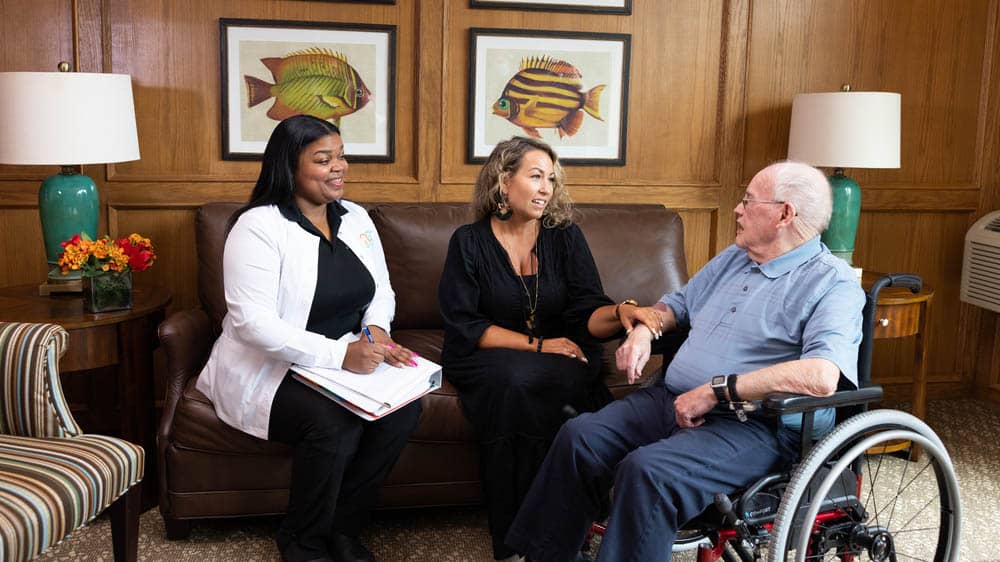

Lifelong Learning Opportunities for Older Adults and Retirees
It’s that time of year again: back to school. And while you might think that only applies to kids, there are actually a significant amount of older folks who choose to go back to school post-retirement. In fact, more so than prior generations, seniors are choosing to continue their educations later in life, proving that it’s never too late to learn something new.
The American Council on Education partnered with the MetLife Foundation to publish a comprehensive report titled, “Framing New Terrain: Older Adults & Higher Education,” as a result of a two-year research project about the needs of older Americans. The report found that the group as a whole plans to remain “engaged in some form of work, community service, or learning activity” through retirement.
The Benefits of Continued Education
There are many reasons why seniors would pursue new opportunities in retirement, including second careers, but continuing education has a host of emotional and mental benefits. Lifelong learning opportunities provide seniors with so much more than what the classroom curriculum provides:
- Social Connection. Loneliness is a big risk factor that comes along with aging, especially for those who choose to remain in their own homes. By choosing to go back to school, seniors who live alone can combat loneliness through social engagement, especially since they will be surrounded by like-minded peers in class.
- Cognitive Improvement. Research has shown that learning new things throughout your lifetime can help keep Alzheimer’s disease at bay. According to the Alzheimer’s Association, “higher levels of education appear to be somewhat protective against Alzheimer’s, possibly because brain cells and their connections are stronger.”
- Skill Enhancement. It can be appealing to learn a new skill or better your skill at a lifelong hobby when you finally have the time in retirement. “Framing New Terrain: Older Adults & Higher Education” found that “many older adults also are driven to study a subject area that they previously never had the opportunity to learn, including those adults with no previous higher education experience.”
Taking all of these benefits into account, it doesn’t come as a surprise that it’s now easier than ever for older adults to engage in lifelong learning opportunities.
Keep Learning on Your Own Terms
In 2014, NBC News ran a story about the increase in the number of older students in classrooms. The story stated that students over the age of 35 accounted for 17 percent of all college and graduate students in 2009, and that the number was expected to increase to 19 percent by 2020. And that doesn’t even take into account the seniors who choose to enroll in non-accredited or community courses. With such a wide variety of opportunities available today, it’s no wonder that lifelong learning is on the rise.
If you are interested in continuing your education in retirement, you have different options to consider:
- University Degree. For those seniors who never attended college or were unable to complete their degree, retirement presents the perfect way to finally achieve that goal. Nola Ochs earned a bachelor’s degree at the age of 95. At the time, Guinness World Records said she was the oldest college graduate. She went on to earn a master’s degree three years later.
- Community College. Community and state colleges are now offering seniors the opportunity to achieve a free education later in life. According to Consumer Reports, “residents 60 and older who meet set requirements can use tuition waivers to take for-credit courses, gratis. If courses for credit aren’t offered, mature students might still be able to audit a class without paying, gaining no credit but gleaning plenty of knowledge.”
- Specialized Programs for Seniors. Many universities and colleges are now catering to the 60-plus crowd by creating special programs and educational experiences for seniors that are not for credit, but solely for personal enrichment. For example, the Osher Lifelong Learning Institute at Florida Atlantic University boasts “educational and intellectual stimulation” by organizing “a diverse and creative curriculum, along with concerts and entertainment” for seniors.
- Online Courses. In this incredibly digital world, those who have mobility issues or a lack of transportation still have the opportunity to continue their education should they so choose, thanks to online courses. Whether through SeniorPlanet.org, Coursera, or EdX, older adults have the ability to learn something new every day from the comfort of their own home.







